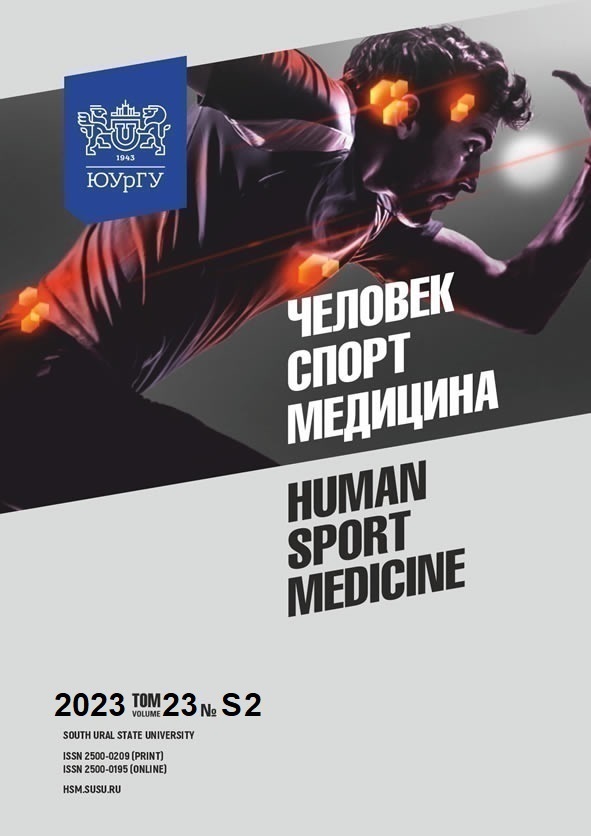PSYCHOPHYSIOLOGICAL CHANGES IN ATHLETES DURING BETA-WAVE BIOFEEDBACK TRAINING
Abstract
Aim. To assess the effect of beta-wave biofeedback training on the psychophysiological parameters of athletes. Materials and methods. Psychophysiological measurements were performed before and after beta-wave biofeedback training. Long-term studies were carried out at the Scientific and Research Institute of Activities in Extreme Conditions (Siberian State University of Physical Education and Sport, Omsk), Dostoevsky Omsk State University, Siberian State Automobile and Highway University (Omsk), Russian University of Sport (Moscow), and the North Caucasian Federal Scientific and Clinical Center of FMBA of Russia (Essentuki). The study involved young athletes ages 18–22 (n = 1020) of cyclic, acyclic and game sports in the preparatory period of the training cycle. The endogenous chronobiological unit of time, reactive and personal anxiety, types of memory (operational, memory for numbers/images), as well as the characteristics of attention and operational thinking were identified. Results. Beta-wave biofeedback training resulted in a significant improvement in memory for images, operational memory, operational thinking, and the characteristics of attention, including efficiency of attention, stability of attention and attentional set-shifting. A moderate increase in anxiety (both reactive and personal) indicates a general stress associated with systemic adaptation to a new level of functioning. Conclusion. Beta-wave biofeedback training contributed to quantitative and qualitative psychophysiological changes without invasive or pharmacological interventions and resulted in increased athletic performance, which is of importance for both training and recovery in athletes.
References
References on translit
Copyright (c) 2024 Human. Sport. Medicine

This work is licensed under a Creative Commons Attribution-NonCommercial-NoDerivatives 4.0 International License.















